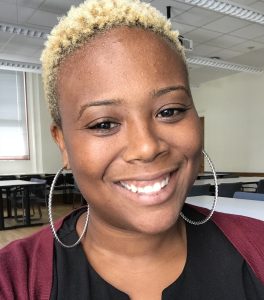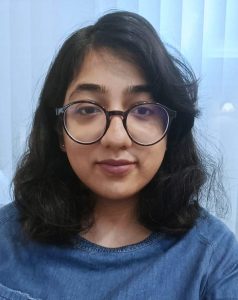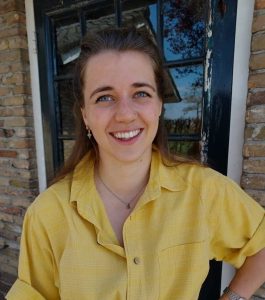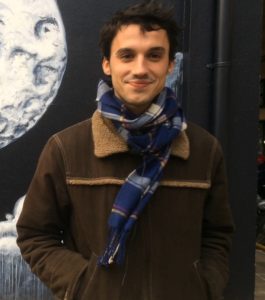Our Team
We are world-renowned scientists, authors, parents, and individuals affected by psychopathy who are working together to alleviate the suffering caused by this disorder.
Board of Directors

Abigail Marsh
Vice President, Co-founder
Professor of Psychology and Neuroscience at Georgetown University

Carrie Barron
Secretary
Director of the Creativity for Resilience at Dell Medical School in Austin

Chris Patrick
Member at Large
Distinguished Research Professor of Psychology at Florida State University
Board of Advisors
ARIELLE BASKIN-SOMMERS, PhD
Associate Professor of Psychology and of Psychiatry, Yale University
JAMES BLAIR, PhD
Director, Center for Neurobehavioral Research in Children, University of Copenhagen, Denmark
INTI BRAZIL, PhD
Associate professor, Neuropsychology and Rehabilitation Psychology, Radboud University, Netherlands
PHILIP CANDILIS, MD, DFAPA
Forensic Psychiatry Fellowship Program Director, Director of Medical Affairs at Saint Elizabeths Hospital, George Washington University School of Medicine (Professor of Psychiatry), Howard University College
HEDWIG EISENBARTH, PhD
Associate Professor in Forensic Psychology School of Psychology at the Victoria University of Wellington, New Zealand
KOSTAS FANTI, PhD
Director, Developmental Psychopathology Lab, Associate Professor of Developmental Psychopathology, University of Cyprus, Cyprus
PAUL FRICK, PhD
Roy Crumpler Memorial Chair in the Department of Psychology at the Louisiana State University
PATRIC GAGNE, PhD
Writer, researcher, and advocate for individuals struggling with psychopathy, sociopathy, and antisocial personality disorder.
KATHLEEN KENNY, MD
Clinical Associate Professor, Medicine – Primary Care and Population Health, Stanford Hospital and Clinics
LIANE LEEDOM, MD
Associate Professor of Counseling and Psychology Practicum and Internship Coordinator, CMHC Program University of Bridgeport
CAMILO ORTIZ, PhD
Director of clinical training and associate professor of psychology, Long Island University
MARY ELLEN O’TOOLE, PhD
Professor and Director of Forensic Science Program, George Mason University
EMILY L. ROBERTSON, PHD
Licensed Clinical Psychologist. Founder & Director of the Center for Child Behavior
RON SCHOUTEN, MD, JD, DFAPA
Director, Forensic Psychiatry Fellowship St. Elizabeths Hospital, Harvard University
ENRICO SUARDI, MD, MSC, MA
Director of Psychiatry Services at Saint Elizabeths Hospital, Washington, D.C.
ARMON TAMATEA, PhD
Clinical Psychologist, Professor of Psychology, University of Waikato, New Zealand
MARY TURNER THOMSON
Author of two international best-selling memoirs about an experience with a psychopath. Speaker, writing coach & self-publishing consultant, United Kingdom
ESSI VIDING, PhD
Professor of Developmental Psychopathology at the Clinical, Educational, and Health Psychology Research Department, Division of Psychology and Language Sciences, University College London, United Kingdom
Our Interns

Caroline Barron
BA, Humanities major in the Liberal Arts Honors program, University of Texas at Austin, expected 2024

Tina Habchi
Laboratory Manager at INSERM (French NIH); Euro-Mediterranean Master in Neuroscience and Biotechnology Graduate

Heesoo Jung
BA, Forensic Psychology, John Jay College;
MSc, Investigative Psychology, University of Huddersfield, United Kingdom;
GDip, Philosophy, Otago University, New Zealand;
MA, Experimental

Valerie Lilley
BS, Social Work, University of Florida;
MA, Clinical Psychology, Columbia University.

Yamini Rastogi
BA Psychology, Marketing and Economics- Indian Institute of Psychology and Research, Bangalore, India;
MSc Clinical Psychology, Christ University Delhi National Capital Region, India, expected

Nina Van Santvoort
BSc, Psychology and Neuroscience, Maastricht University, Netherlands;
MSc, Applied Criminology and Forensic Psychology, Napier University, Edinburgh, Scotland.

Otavio Travi
BA, History, Universidade Federal do Rio Grande de Sul, Brazil;
MA, Literacy, Uninter International University, Brazil.

Maria Dolgaleva
BA Philology HSE University, Moscow, Russia;
Master in Specialized Translation, University of Bologna, Italy.
Donate to Psychopathy Research
Your donation will go towards scientific research that is needed to discover more effective screening tools, treatments, and interventions for psychopathy.



